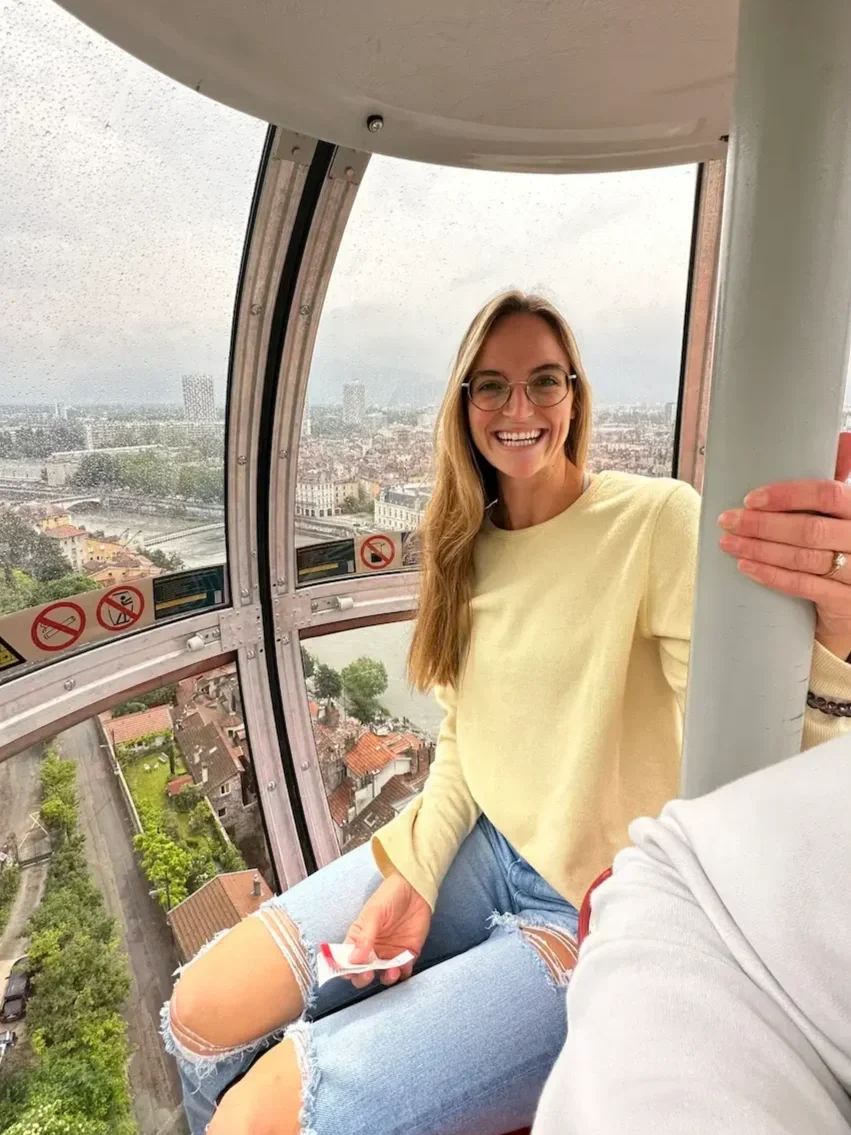
EMDR Therapy for Trauma & Anxiety: Serving Florida, Texas + Beyond
because logic hasn’t made it go away
healing the stuck stuff without having to talk it to death
EMDR (Eye Movement Desensitization and Reprocessing) is a powerful, research-backed trauma therapy that helps your brain and nervous system process painful or confusing experiences that haven’t fully healed — especially the ones you thought you already dealt with.
It’s especially helpful if you feel like you logically know you’re okay… but something in your body or emotions still isn’t convinced. Maybe your anxiety keeps flaring up. Maybe you keep overworking, people-pleasing, or numbing out — even when you know better. EMDR helps you get to the root of that stuckness, without having to rehash every detail.
Whether it’s a specific event (like a breakup, accident, assault, or betrayal) or something more chronic and subtle (like childhood emotional neglect, spiritual wounding, or years of perfectionism and emotional monitoring), EMDR helps untangle those internal loops and release the emotional charge around them — so you can finally move forward with clarity and ease.
when emdr might be what you need:
-
Anxiety, panic attacks, and looping “what if” thoughts
Relationship wounds, breakups, or attachment-related trauma
Perfectionism, people-pleasing, and shame rooted in early experiences
OCD symptoms that don’t respond to reassurance or reasoning
Trauma from emotionally neglectful or chaotic family systems
Sexual assault or unwanted sexual experiences that still affect you
Spiritual confusion or fear tied to past church environments
Feeling stuck in adulthood with no clear sense of self or direction
-
Guilt, grief, or shame related to ministry, re-entry, or unmet expectations
Traumatic or high-stress experiences abroad (e.g., medical emergencies, political unrest, team conflict)
Ministry burnout and spiritual exhaustion from always being “on”
Complicated relationships with sending churches, supporters, or teammates
Loss of stability, belonging, or identity—especially for missionary kids
Religious trauma or internalized pressure to “be okay” at all times
-
Childhood sexual abuse or trauma that still lives in your body
Recurring nightmares or distressing dreams
Insomnia and trouble falling or staying asleep
Emotional flashbacks—when old memories still feel alive in the body
Self-critical thoughts you can’t talk yourself out of
Overreactions that seem “too much” but make sense once we connect the dots
That chronic, lingering sense of “something’s wrong with me”
what to expect
Let’s be clear: this isn’t a “rip the Band-Aid off and hope for the best” situation.
We go slowly. Whether you’re doing virtual EMDR therapy or meeting in person near Indian Rocks Beach, we’ll start by building a safe, grounded connection—because trauma therapy should never feel like you’re being thrown into the deep end with no life vest.
Together, we’ll build a toolkit that helps you feel resourced, present, and emotionally safe—so you can move in and out of hard memories without spiraling, dissociating, or shutting down. Think less “emotional bootcamp,” more like a slow, supported hike: challenging, yes, but with breaks, snacks, and someone walking beside you the whole way.
When you’re ready, we’ll choose memory targets collaboratively—starting with the ones that feel both meaningful and manageable. I integrate ego states therapy (also called parts work) so that all versions of you—especially the younger ones and the protective ones—feel seen, safe, and respected in the process.
We’ll also use principles from polyvagal theory to track your nervous system’s cues and adjust as needed. The goal isn’t to push through—it’s to actually heal. That means working with your body, not against it.
some FAQs to get us started
-
Totally. While EMDR started as an in-person therapy, it’s highly adaptable for virtual work. We’ll use tools like bilateral audio, tapping, or eye movements using your screen—whatever feels most natural and effective for you. You don’t need any special equipment (just a private space and decent Wi-Fi), and I’ll guide you through every step so it feels safe, contained, and productive.
-
It depends. Some people find relief after just a few reprocessing sessions, while others take more time—especially if we’re working with complex trauma, layered memories, or parts work. We’ll take it slow, build trust, and move at a pace that feels right for your system.
-
Yes—usually! I offer virtual EMDR therapy to missionaries and expats living internationally, depending on the laws of the country you're living in. Some countries have restrictions on receiving therapy from someone licensed in the U.S., but many don’t.
If you're unsure, reach out and I can help you figure out whether it's possible based on where you're located. I love working with cross-cultural workers, and we’ll make sure to do it in a way that’s ethical, spiritually attuned, and legally sound.
-
Nope. One of the great things about EMDR is that it doesn’t require you to verbally walk through every part of your trauma. As long as you know what memory we’re targeting, we can let your brain do the work—without needing to retell everything out loud.
-
Then we slow it down. A big part of my approach is making sure you feel safe and steady—not retraumatized. We’ll build regulation skills, get to know your nervous system’s patterns, and integrate ego states work to make sure all parts of you are on board before we dive into the deeper stuff.
-
Maybe a little. It’s common to feel tired, emotionally tender, or even a little foggy the rest of the day—your brain is doing big work! Some people notice dreams, body sensations, or unexpected memories popping up afterward, too. We’ll talk through how to track all of that and care for yourself between sessions.
-
If it’s still bothering you, it’s big enough.
EMDR isn’t just for life-altering events—it’s also for the smaller moments that quietly shaped how you see yourself, others, or the world. That one teacher’s comment. The way a friend left. The subtle rejection that still stings years later. You don’t have to justify why something hurt in order for it to matter.
If your brain keeps looping it, there’s a reason—and we can work with that.

you don’t have to keep reliving it 💌
Your brain is built to heal—and EMDR therapy is one powerful way we can help it do that. If you're curious whether EMDR might be a good fit for your anxiety, trauma, or emotional stuckness, I'd love to talk more.
I offer virtual EMDR therapy across Florida and Texas, and in-person sessions at Indian Rocks Beach. I also work with missionaries and expats, offering international online sessions depending on your country’s regulations.
Use the buttons below to send me a message or book your one-time Free 15-Minute Discovery Call. No pressure to commit—just a thoughtful space to ask questions and explore your next step.



